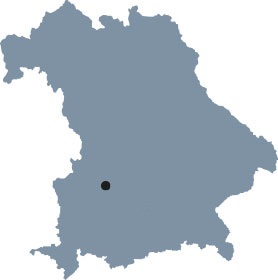Off the Menu: Appetites, Culture, and Environment
How food is not only produced but also consumed is intimately linked to the climate crisis. Spotlighting the relationship between human appetites and environmental change, this research group brings together the fields of food studies and the environmental humanities to introduce what it calls the culinary environmental humanities.
| Place of research | University of Augsburg |
| Association | International Doctoral Program “(Um)WeltDenken: Rethinking Environment” |
| Project duration | 2023 to 2029 |
| Group leader | Dr. L. Sasha Gora Contact the group leader |
| Further information | Website Off the Menu |
Rethinking environments through a culinary lens
Eating is one of the most direct ways people interact with environments by literally digesting them. Food is also how people experience climate change and confront the question of how to feed a growing population on a planet with limited resources. Food connects the micro with the macro and cuisine is, thus, a unique entry point for contextualizing the sixth mass extinction and the future of planetary health.
The “Off the Menu” research group takes an interdisciplinary, environmental humanities approach to contextualize the planetary emergency by highlighting the intersection between culture and the environment with a focus on seafood. Three global case studies address how human appetites transform environments and, in turn, how appetites respond to transformed environments: The Newfoundland “Cod Rush” and the environmental crisis; culinary extinction and the ethics of endangered foods; and how cuisines adopt or reject “invasive” species. Taking these examples together, the group also investigates the emergence of climate-conscious eating practices.
Cuisine reflects how cultures categorise and mediate human relationships to plants and animals. Its study yields an understanding of how people transform the worlds around them. “Off the Menu” seeks to historicise the intimate relationship between cuisine and environmental change and the history of culinary sustainability.


Contemporary environmental challenges do not adhere to disciplinary boundaries and, in response, the Junior Research Group format provides the ideal conditions for innovative and transdisciplinary thinking.
Dr. L. Sasha Gora
The Junior Research Group cooperates with the International Doctorate Program “(Um)WeltDenken: Rethinking Environment” at the University of Augsburg and the Ludwig-Maximilians-University Munich.


